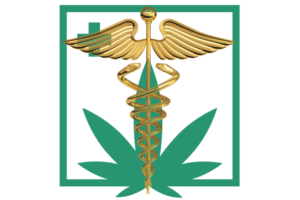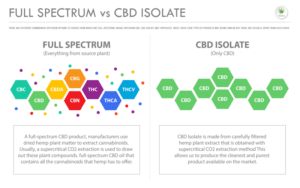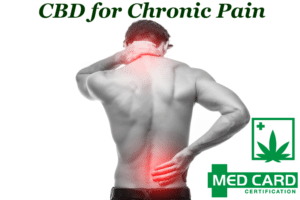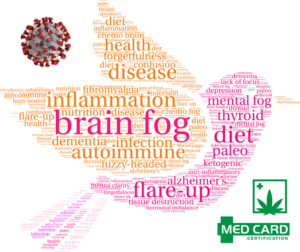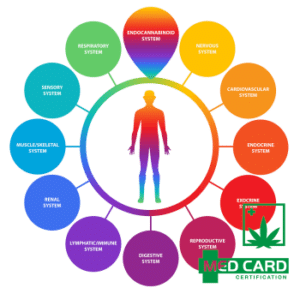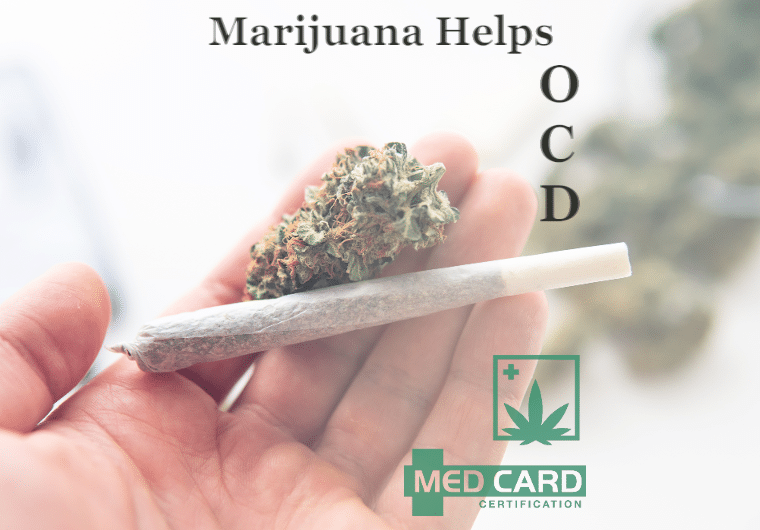
Medical Marijuana Bringing Relief to OCD Patients
Can medical marijuana be used to treat OCD? Actually, several U.S. states will grant a medical marijuana card for OCD patients. In this high quality content, we’ll go over some of the evidence that suggests that medical marijuana is safe and effective for treating OCD. We’ll also talk about how medical marijuana is used to treat OCD.
The number of patients using medical marijuana to treat OCD is rising fast in the U.S. But are these products effective and safe to use? If so, which products and delivery methods are best for OCD patients?
Not only have many OCD patients had good results and no adverse side effects using medical marijuana for OCD, many find that marijuana also helps address the side effects of prescription medications commonly used to treat the condition. As a result, medical marijuana is often used in conjunction with standard treatments. However, in some cases, patients who use medical marijuana are able to stop using pharmaceuticals altogether.
What is OCD?
Obsessive-compulsive disorder, also known as OCD, is actually a collection of particular types of anxiety disorders. Anxiety disorders include generalized anxiety, social anxiety, and PTSD, as well as phobias such as germophobia, just to name a few of the more common forms of anxiety.
OCD is most often characterized by obsessive worrying and/or compulsive and repetitive behavior. Symptom severity can range from mild to debilitating. In the worst cases, OCD patients suffer from severe anxiety on a daily basis.
Being that OCD is a mental health condition, patients will generally benefit from cognitive therapy. However, therapy alone is not always enough to bring balance into an OCD patient’s routine. Oftentimes prescription pharmaceuticals are used to modulate brain chemistry and treat the symptoms of OCD.
Unfortunately, the most commonly prescribed OCD drugs often come with unwanted side effects, some of which can be severe. Patients who use these drugs are often plagued with side effects such as nausea, headaches, diarrhea, weight gain, insomnia, drowsiness, confusion, blurred vision, and depression. Anti-anxiety drugs can also cause some patients to become easily agitated.
Many OCD patients are finding that medical marijuana provides them with some measure of relief and reduces the side effects of their treatment.
How does medical marijuana help OCD?
The term marijuana actually refers specifically to the resinous flower clusters of the female cannabis plant. And, technically, marijuana only includes strains of cannabis that are high in THC — the active compound found in marijuana that can cause intoxication and feelings of euphoria.
There are also strains of cannabis that are essentially devoid of THC that fall into the category of hemp. Hemp flower looks and smells exactly like marijuana but does not cause a high.
All cannabis — both marijuana and hemp flower — contain two types of compounds that are effective for treating OCD and drug side effects. These are known as cannabinoids and terpenes.
The flower clusters of the most potent cannabis strains consist of as much as 25 to 30 percent cannabinoids. The two most common cannabinoids are THC and CBD. However, some other minor cannabinoids such as CBG are now coming into favor. While THC can cause intoxication, most other common cannabinoids including CBD and CBG do not.
Different strains of cannabis produce flowers with different ratios of cannabinoids. Some are high in THC with low levels of CBD, while others are CBD-rich with low levels of THC. CBG-rich hemp strains are also available.
Terpenes, the second family of active compounds found in cannabis, are essential oils that give cannabis flowers their distinctive aroma. (Cannabinoids are odorless.) There are scores of terpenes. Terpene-rich oils are extracted from a myriad of herbs. Each particular terpene has its own set of medicinal benefits. Terpenes have been used in a healing modality known as aromatherapy for millennia.
Terpenes are far less abundant than cannabinoids and are measured in parts per million. However, their effects can be potent. Some terpenes are relaxing, some relieve nausea, some are uplifting, some help relieve pain, and so on. This means that some strains are more useful than others for treating particular symptoms and of OCD and side effects of anti-anxiety medications.
The human endocannabinoid system
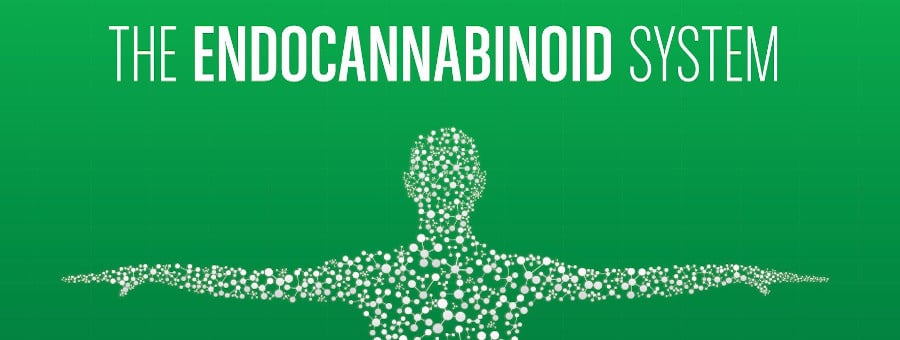
A healthy human body naturally produces its own cannabinoid compounds known as endocannabinoids. They are part of a system of signaling molecules and receptors known collectively as the endocannabinoid system, or ECS. The ECS is responsible for regulating a wide array of activities in the human body. Moreover, deficiencies in endocannabinoids are thought to produce an array of health problems including anxiety.
Phytocannabinoids are produced by a number of plant species. The medicinal effects of marijuana are attributed to the ability of phytocannabinoids such as THC and CBD to mimic, to some extent, the effects of our own endocannabinoids. Supplementing the diet or otherwise ingesting cannabinoids can affect the workings of the ECS and help to return balance to many bodily functions.
One particularly relevant brain function involved in OCD is called fear extinction. While the average person might worry about things such as germs, worrisome thoughts generally subside after a good hand washing. This is just one example. However, in OCD patients, that fear extinction process is hampered and the fear continues after the danger has passed. Cannabinoids have been shown to help balance neurotransmitters and hormones that play a role in this process.
At the end of this article, you’ll find links to some of the studies that suggest that marijuana might be an effective treatment for some patients with OCD.
Is medical marijuana safe for treating OCD?
As we mentioned earlier, traditional medications used to treat OCD can come with some severe side effects, some of which can cause long-term problems for patients. In addition to helping to reduce anxiety, marijuana also has the potential to reduce unwanted side effects of these drugs.
Marijuana can also have unwanted side effects of its own such as intoxication, lethargy, and paranoia. However, when used properly, and not abused, marijuana’s side effects can be mitigated.
Hundreds of clinical studies have been undertaken to determine the efficacy and safety of marijuana for treating a wide variety of medical conditions. Not one of these studies mentions any overdose deaths or long-term harm to patients due to marijuana use or cannabinoid ingestion.
The most important point for OCD patients to remember is that consuming high levels of THC, in particular, can actually make matters worse. For this reason, new medical marijuana patients suffering from any form of anxiety should start with products that are high in CBD or CBG and low in THC.
Which medical marijuana products are most effective for treating OCD?
OCD symptoms can range from sudden onset symptoms, such as panic attacks, to longer-term symptoms such as generalized anxiety. Dealing with sudden onset symptoms requires a delivery method with a short onset time, that provides relief quickly. Smoking marijuana and vaping cannabinoid-rich oils provide the fastest onset times. The effects are almost immediate.
For patients with sudden onset symptoms who are averse to smoking or vaping, another option would be tinctures and oils. Cannabinoid-infused tinctures and oils can be used sublingually (under the tongue), or orally in the form of gelatin capsules or candies such as gummies. These products, when taken on an empty stomach, are absorbed into the bloodstream via the lining of the mouth or stomach.
For patients with ongoing symptoms, longer-lasting delivery methods such as edibles are recommended. Cannabis-infused baked edibles as well as capsules and candies taken with a meal offer longer-lasting effects. These products are also ideal for nighttime use.
How do OCD patients get a medical marijuana card?
More than two-thirds of U.S. states have instituted some type of medical marijuana program. However, not all of these states list OCD or anxiety disorders in general among the qualifying conditions for obtaining a medical marijuana card.
To check eligibility, a patient should contact their state health department or a local medical marijuana doctor. If the patient meets eligibility requirements an appointment can be made for an in-person examination. Some states also allow remote consultations via audio or video conference (aka telemedicine).
I a patient is approved, the healthcare provider’s staff will generally help their patients register with their state or provide them with instructions in order to receive their medical marijuana card.
Click here for map of medical marijuana doctors in your area.
Where can OCD patients obtain medical marijuana?
Most states with medical marijuana programs require patients to purchase their medicine at a state-licensed marijuana dispensary. The rules for dispensaries in each state (such as product availability and purchase limits) also vary.
Some states allow medical marijuana patients and their caregivers to grow their own marijuana. However, growing high-quality medical marijuana is not easy and it takes time and money. Furthermore, patients need to be fully aware of the laws pertaining to growing marijuana in order to remain in compliance. Penalties for growing marijuana illegally can be severe.
There is an alternative to going through the process of getting a medical marijuana card and shopping at a dispensary. Many OCD patients find that hemp-derived products that are THC-free provide adequate relief. The same products available in some dispensaries — smokable hemp flower, CBD oils and tinctures, CBD oil capsules, and CBD edibles — can be purchased online without a medical marijuana card.

Sign Up for Medical Cannabis Today!
For potential patients, if you’re ready, we make it easy to connect with a medical marijuana doctor nearby or online. If you are interested in getting certified, please fill out the MMJ patient registration form below and press submit to get started. See if you qualify today!

MedCard Registration Form

Sources and additional reading
- Marijuana From Mom: Mother Says Drug Helps Son Cope with Severe OCD
- Cannabis reduces OCD symptoms by half in the short-term
- CBD for OCD: Research, Benefits, Dosage, Recommended Products
- Study Suggests Cannabis May Alleviate Symptoms of Obsessive-Compulsive Disorder
- Cannabis and OCD: What does the science say?
- Cannabis Improves Obsessive-Compulsive Disorder—Case Report and Review of the Literature






